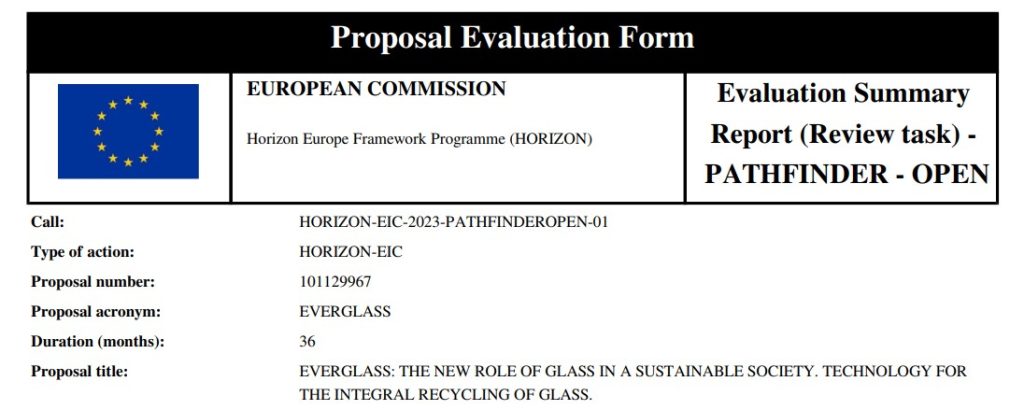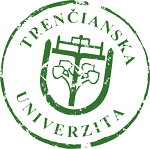FunGlass will work on development of a revolutionary concept of glass recycling
With great pleasure, we would like to inform you, that FunGlass Centre was successful in Horizon Europe program under the call European Innovation Council Pathfinder Open 2023! We have become a partner of a successful project with the title EverGLASS (The New Role of Glass in a Sustainable Society. Technology for the Integral Recycling of Glass) which is coordinated by the School of Engineering of Universidad de Vigo (Spain).
EverGLASS proposes a radical transformation in the recycling and utilization of waste glasses through the development of a groundbreaking glass laser morphing technology. The project introduces a novel approach that integrates recycling into the manufacturing process of tailored glass products, offering a solution to the environmental challenges associated with waste glasses.
This ambitious proposal was prepared also in cooperation with the experts from the Institute of Ceramics and Glass of CSIC (Spain), European Science Communication Institute (ESCI) GGMBH Germany, Dairy Products Department of Actalia Association (France), Fraunhofer Institute for Industrial Mathematics (ITWM), Dept. TV of the Fraunhoffer Gesellschaft zur Forderung Der Angewandten Forschung EV (Germany). The project implementation with financial support of € 2 961 225,00 (of which TNUAD 540 500,00Eur) is planned for 36 months. Now we are in process of grant agreement preparation.
The European Innovation Council (EIC) received 788 project proposals from the research community by 7 March 2023 deadline (4758 participants in total), requesting €2.412 billion of grant support. Applicants were coming from 55 countries. The total indicative budget for this call was €179.5 million and it was expected that approximately 60 projects would be funded.
EIC Pathfinder Open call is designed for projects with new and ambitious vision for radically new technology. It supports early stage development of such future technologies (e.g. various activities at low Technology Readiness Levels 1-4), based on high-risk/high-gain science-towards-technology breakthrough research (including ‘deep-tech’). EIC Pathfinder Open support the work, especially if it is highly risky: you may set out to try things that will not work; you may be faced with questions that nobody knows the answer to yet; you may realize that there are many aspects of the problem that you do not master.
EVERGLASS abstract:
Glass recycling uses mature technology limited by high energy consumption to melt tons of glass and the inflexibility of a heavy-duty system. Current technology only allows the recycling of certain glasses and a very small amount of waste generated. A new technology is required to allow the integral recycling of all types of glass, drastically reducing the carbon footprint. EverGLASS proposes to develop a radically new technology called “glass laser transformation” for on-site glass recycling and the generation of customized or technical products. Users will feed waste into a new machine and select which new product to get. The vision is ambitious, as it aims to bring to the consumer market a novel technology to enable virtually infinite reuse of glass. It is also radical since, through a multipurpose system capable of being located on any site, it proposes an alternative approach to the traditional centralized recycling process (particularly where this model is not possible, generating thousands of tons of glass waste annually
taken to landfills). The new technology goes beyond the current limitations of the systems (high energy use, expensive and rigid process, strong logistical requirement), adopting a highly environmentally friendly model that will allow flexibility in the use of the material and in the process. Therefore, EverGLASS has the potential to revolutionize recycling as a concept. It also addresses one of the main problems with recycling, user participation, in an innovative way by allowing the personalization of recycled items of different use. Finally, it aims to encourage the use and reuse of glass as a quality material, displacing more environmentally problematic materials, such as plastics. This project brings together experts from advanced laser technologies (UVIGO), glass and ceramics science (ICV-CSIC), glass processing and engineering (TnUAD), risk and impact assessment (ACTALIA), Social Sciences (ESCI) and numerical simulation (ITWM).













